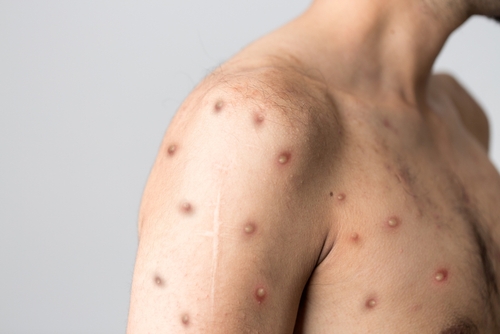
San Francisco declared monkeypox a local public health emergency last week as New York state designated the disease an imminent threat.
In both cases, such designations will help focus preparedness and response efforts to rising cases of monkeypox. That same disease was declared a public health emergency of international concern by the World Health Organization (WHO) last month, and since then, cases have climbed to more than 21,000 worldwide since May. The United States has hosted the largest portion of this outbreak, with more than 4,900 cases reported by the Centers for Disease Control and Prevention as of July 28, 2022.
In San Francisco, the new legal action on the disease will allow for greater coordination and streamlined staffing, future reimbursement by the state and federal governments, and push the government to educate city residents on how best to stop the spread of monkeypox. The designation went into effect today after being announced last week – and city case counts have continued to rise.
“San Francisco showed during COVID that early action is essential for protecting public health,” Mayor London Breed said. “We know that this virus impacts everyone equally – but we also know that those in our LGBTQ community are at greater risk right now. Many people in our LGBTQ community are scared and frustrated. This local emergency will allow us to continue to support our most at-risk while also better preparing for what’s to come.”
The mayor’s office reported that San Francisco expected to receive 4,220 doses of the JYNNEOS monkeypox vaccine last week – far from its desired figure, showcasing the difficulty of combating the normally rare disease. The San Francisco Department of Public Health (SFDPH) initially requested 35,000 doses of the vaccine but reported that it has only received approximately 12,000 doses as of last week. So far, 261 cases of monkeypox have been confirmed in San Francisco and 799 cases in California.
“San Francisco is an epicenter for the country. Thirty percent of all cases in California are in San Francisco,” said Dr. Susan Philip, San Francisco Public Health Officer. “We have always been on the forefront of advocacy and action for LGBTQ+ health, and I’m issuing this declaration to reaffirm our commitment to the wellbeing of these communities and to allow us to move more quickly to obtain and distribute the resources needed to help those disproportionately impacted.”
The monkeypox virus is dangerous to all, regardless of gender or sexual orientation, being spread by prolonged skin-to-skin contact. However, the disease has spread more rapidly among the LGBTQIA+ community, particularly among homosexual men. SFDPH noted that it would continue to request additional vaccine allocations from the state and distribute them to clinics, health systems, and other locations as needed.




